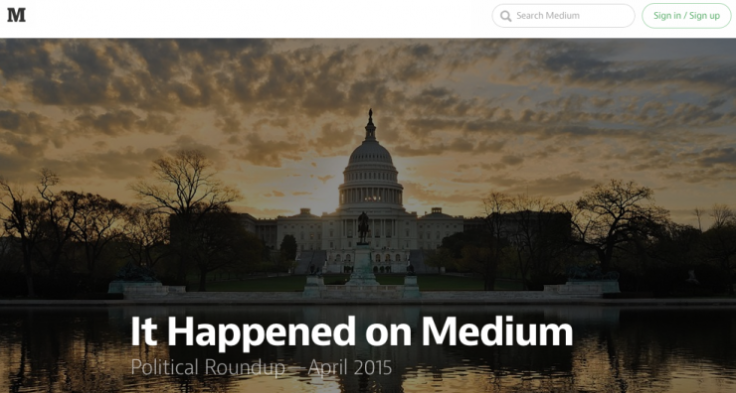The Anti-Reddit? Medium Updates Rules For Revenge Porn, Online Harassment

Medium wants you to speak freely, but nicely. The publishing site updated its rules and now prohibits the posting of private or confidential information, revenge porn and other acts of public shaming.
The change, announced in a Medium post Monday, aims to prevent harassment on the site. Medium, launched in 2012 by Twitter co-founders Evan Williams and Biz Stone, has casted itself as a blogging site and social network, where anyone can publish and comment on stories within a network free from click ads or other associated content. Medium has become a popular forum for startup founders, corporate executives and politicians to publish formal statements and insights.
But while anyone with a Twitter account or email address can join, Medium has taken a new stance on what content is allowed to be shared. “Some speech shuts down more expression than it opens up, by causing silence, retreat, isolation, or intimidation. No one should feel any less than who they are from spending time here,” the blog post reads.
The rules, which begin with "Some parts of the Internet lack rules. This isn’t one of them," state in plain language what can and cannot be posted on the network. Medium does not tolerate shameful images, copies of private information, phishing, impersonation and promoting self-harm. Accounts who break these terms will be suspended or blocked at the discretion of the network.
In April 2015, Medium introduced the ability to block another user on the site but had yet to clarify its content sharing rules. This policy update comes at a time when other social networks have been battling harassment cases and trying to determine their own best practices. Popular chat forum site Reddit has been criticized for encouraging hate speech. Facebook has repeatedly failed to take down death and rape threats. Earlier this month, Twitter created a new online “Safety Center” as a hub for its reporting and blocking tools.
Medium acknowledged the difficulty these networks face and said that it wants to be better. “Every online social platform has to come to terms with the tension between fostering free expression (“Say anything!”) and creating a place where everyone is free to be who they are (“You are welcome here!”),” the blog post reads.
While Facebook and Twitter have tried to improve their algorithms and online tools to identify and act on harassment cases, Medium said it will allow a more personal handling of a situation by users to speak to a real person about a reported case, The Next Web reports. That offer may be much easier for a young network with an undisclosed number of active users while Twitter has 300 million and Facebook boasts 1.44 billion users.
© Copyright IBTimes 2024. All rights reserved.





















